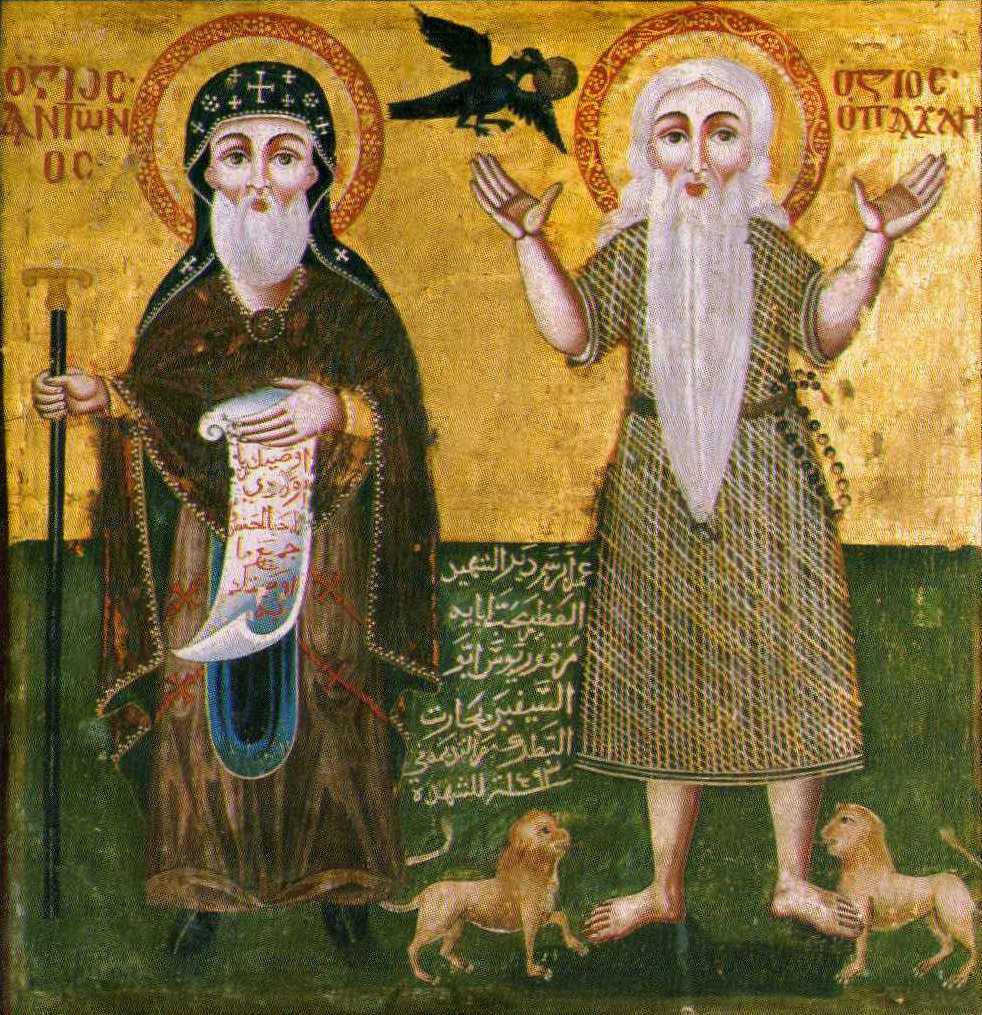Yesterday, I was writing about ways to build mixed-age community in my large apartment building, and, today, the first day of a new month, I pulled out Jen Fulwiler’s Saint Generator and drew St. Paul of Thebes, believed to be the first Christian hermit. His life was recorded by St. Jerome (who had his own feast day yesterday).
Jerome’s life of Paul closes with these words:
I may be permitted at the end of this little treatise to ask those who do not know the extent of their possessions, who adorn their homes with marble, who string house to house and field to field, what did this old man in his nakedness ever lack? Your drinking vessels are of precious stones; he satisfied his thirst with the hollow of his hand. Your tunics are of wrought gold; he had not the raiment of the meanest of your slaves. But on the other hand, poor though he was, Paradise is open to him; you with all your gold will be received into Gehenna. He though naked yet kept the robe of Christ; you, clad in your silks, have lost the vesture of Christ. Paul lies covered with worthless dust, but will rise again to glory; over you are raised costly tombs, but both you and your wealth are doomed to the burning. Have a care, I pray you, at least have a care for the riches you love. Why are even the grave-clothes of your dead made of gold? Why does not your vaunting cease even amid mourning and tears? Cannot the carcasses of rich men decay except in silk?
I beseech you, reader, whoever you may be, to remember Jerome the sinner. He, if God would give him his choice, would much sooner take Paul’s tunic with his merits, than the purple of kings with their punishment.
When I read these kinds of exhortations, I tend to feel stirred up by miserly pride. Couldn’t I manage with less? Aren’t I strong enough to withstand privations? This kind of attraction to the hermetic life isn’t very different than the pride of rich men, wrapping their carcasses in silk. They gaudily show their mastery of the physical world by purchasing and possessing it, and then refusing to permit its beauty to linger if they are no longer around to see it, shutting their treasures up in their tombs.
Meanwhile, I am seduced by a different form of mastery, the unwillingness to be moved or dominated by material needs. While the rich people Jerome condemns take an offensive tack, subordinating the world to their whims, I still err on the side of playing defense, reluctant to hold onto any desire that could warp my judgement or willingness to act.
But St. Paul, living an impoverished existence in the desert, wasn’t led out there by contempt or scorn for the world. In Jerome’s story, when St. Paul welcomes St. Anthony, his food is miraculously doubled, so that he can feed his guest, and St. Paul is just simply happy. There’s no lust for self-denial for it’s own sake. When Paul’s life is pared down, it is in the service of greater generosity, not David Blaine-style stunts. Paul lives his life focused on what he can give away, not on what he can give up.
I think this is the challenge for me to focus on — to make choices not for the sake of economy alone, but with an eye to what I’m husbanding my time or money for. My efficiencies should be aimed at being able to spend my time, money, and energy better, in love and service to God and others — not just in keeping tally of what I’ve saved to wrap carcasses in.
You can check out other Saint of the Month posts here.
Today is the feast of St, Therese of Lisieux, and the final day of her novena. Today is also the One Rose Invitation Day, sponsored by Imagine Sisters to foster vocations like St. Therese’s.













